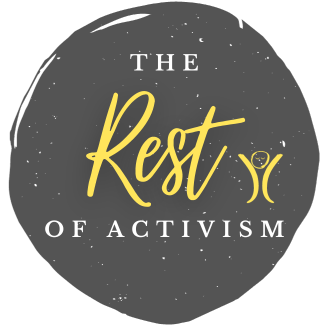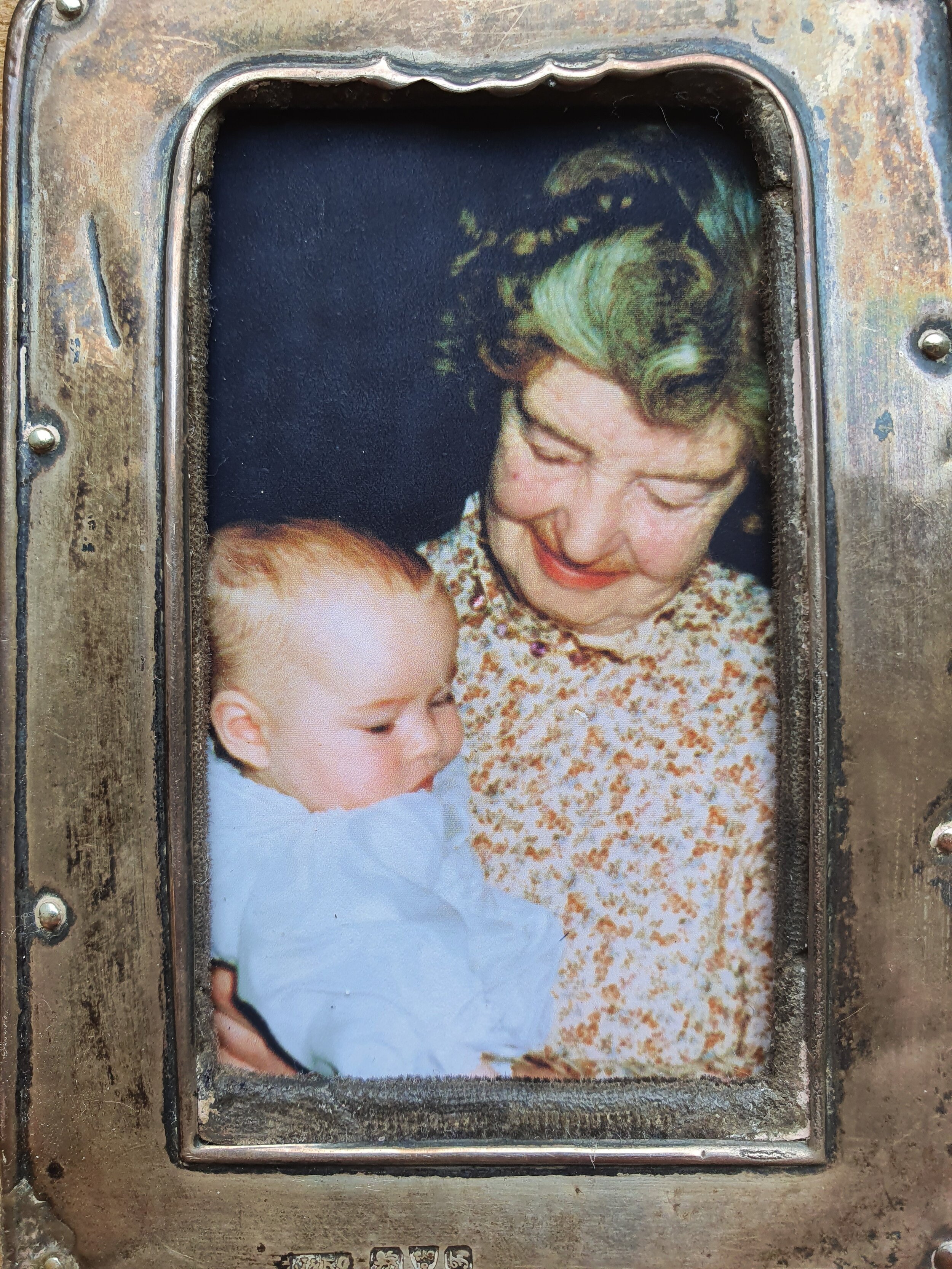On…Black Lives Matter
What can I learn from my colonial ancestors?
Following my Grandpa's army career overseas, my grandparents lived the first fifteen or so years of their young family's lives in South Africa. They moved back to England after the anti-apartheid movement gained momentum.
During those years in South Africa, my sweet, sweet Grandma, who I lost at the age of eleven and who I still miss every day- who taught me to knit and pick runner beans- that same Grandma used to sleep with a gun under her pillow.
And I have no doubt she’d have used it if she ever felt her family needed protecting.
Most of us today, thankfully, think racism is bad, but that doesn’t mean the good things, or people, in our life are therefore untouched by its toxic grip.
So whilst it’s hard for me to imagine that my grandparents could have colluded with a system of violence and racism, I must, because they did. And I still do.
I am born with privilege that would not have been mine if my ancestors were of colour. The opportunties I have had in life came and continue to come at the cost of others. It is a vast and virtually incalculable debt that I owe.
And colonialism isn’t just an historic event, a distant memory of, say, a powerful empire, now struggling to come to terms with its own smallness. Or of ‘liberated’ countries still realing from empire’s ravaging.
Colonialism is also a mindset. To exert power. To own. To protect what has been aquired, regardless of the cost to others. It’s called entitlement, and it’s not an easy or comfortable thing to spot in yourself.
‘What can I do? What can I possibly do?’
That question has haunted me since the murder of George Floyd.
I won’t even bring myself to watch the video. But to listen and to hear the experiences of people of colour, without censorship, is the first step to redemption.
Right action comes from greater understanding. So the starting point is always in the listening. The heart open, won’t look away, deep kind of listening that is required.
But we shouldn’t expect that people of colour will always want to explain their experiences to us, because that can be exhausting and damaging.
So with resolve to do better, I’m beginning by working my way through this reading list.
The Climate Emergency and Racism
I’m also looking inwards and seeing where colonialism and racism might still hold a grip on my mindset and my life. That’s where I am seeing the connection with my every day choices- and with climate change- as I continue operating within a system ensnared by racism.
The clothes I buy, the food I eat, the holidays I take. They are subsidised by many people of colour.
And when I engage in overconsumption I know that climate change disproportionately effects people of colour. Thousands, millions of lives, that matter.
Yet, most days, I find ways to live with that knowledge, because change feels insurmountable.
So what have I to learn from my colonial ancestors? Perhaps that we’re not so different, and I resolve to do better.
The Colonial Legacy of Historical Emissions
In 2015 world leaders gathered in Paris and reached an agreement to limit global warming to 1.5°C.
It was a staggering and monumental achievement, especially considering that the much anticipated UN climate negotiations in Copenhagen had collapsed just a few years beforehand.
The previous failure to reach an agreement had in part resulted from a dispute over how much each country should reduce their emissions.
How much should the countries who had economically benefitted from fossil fuels— those with historical emissions— compensate and finance those who now have the task of developing sustainably, whilst also being on the forefront of the impacts of climate change?
It is no coincidence that often those with the largest historical emmissions were those who have gained enormous wealth through colonialism.
Leaders of those large economies built on fossil fuels worried about losing face with their electorate if they returned from the negotiations with what looked a poor deal.
Countries on the forefront of managing the climate change impacts stood their ground.
The talks collapsed.
So the idea of Nationally Determined Contributions (NDCs) was born.
Each country would suggest its own contribution to cutting emissions, and if the grand total was not enough, each would be asked to go back and review their offer. It was understood that this might need to happen several times in order to reach the 1.5°C target.
This enabled the world to reach an agreement in Paris in principle, but currently the existing NDCs on offer sets the globe on track for 3°C of warming. That would be a catastrophe.
So world leaders were due to meet again here in the UK this November in an attempt to drive that figure down. In March the summit has been postponed by a year due to coronavirus.
Hope in Net Zero
One of Theresa May’s last acts of Parliament was to pass the UK’s ‘net zero’ legislation. This means that the UK is now committed to making sure that we do not release more emissions than we can absorb into the atmosphere, for example through tree planting or restoring peatlands.
We were the first major economy in the world to make such a commitment, and it puts the UK in line with the ambition of the 2015 Paris Climate Agreement.
But it doesn’t take account of our historical emmissions. Yes, the UK is now operating within a political framework consistent with the UN’s scientific guidance, but shouldn’t we aim to reduce our emissions quicker in order to take responsibility for our disproportionate contribution to the climate emergency?
How Can we Reach Net Zero Sooner?
Currently the UK does not have a plan of action to reach Net Zero, by any date.
We have made a commitment, but the government has not yet laid out a pathway for getting there.
If you want to understand more about why that is the case, I would highly recommend Rebecca Willis’ book ‘Too Hot to Handle.’
But essentially it boils down to this;
MPs think they will lose the support of their electorate if they take ambitious action on climate change.
So, if you care about climate change, and if recent developments in the Black Lives Matter movement have stirred you to reflect on your own participation in systemic violence, I would encourage you to write to your MP and ask them to make climate change a priority.
Ask them to press the Government for a roadmap to Net Zero.
Ask them if they would consider encouraging the Government to surpass its own target, given the UK’s historical emissions.
And in particular, ask them to put climate at the heart of our coronavirus recovery programme.
However futile you think it might be, they need to hear from you. They need to know that they have your support for a rapid and comprehensive response to the climate emergency. They need to know that this matters.
Want to get your MP fired up about the climate emergency?
Take a look at climate lobbying specialists, Hope for the Future.
Sign up to the Build Back Better campaign to put climate at the heart of the UK’s coronavirus recovery plan.
About Me
I’m Jo, formerly the founder Director of national climate change charity, Hope for the Future. I am currently researching eco-anxiety and how we can build emotional resilience in our response to the climate emergency.
Welcome to Climate.Emergence- a place to emotionally process what on earth is happening to us and our planet.




